Support trans people because our safety matters. Not to be on the “right side of history”
By K.M. Noble
30 June 2022
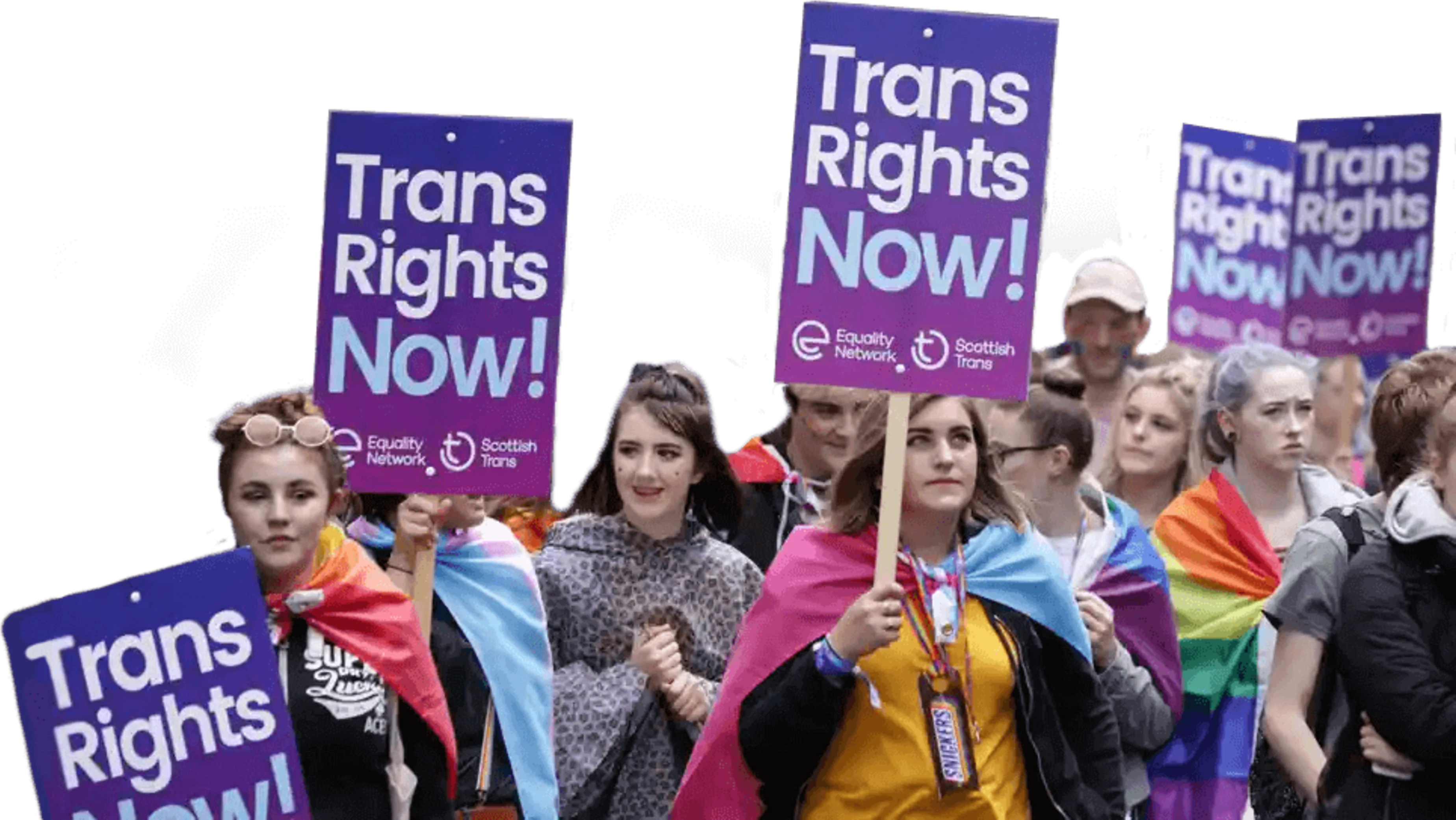
By K.M. Noble
30 June 2022

As a transgender man who has spent several years reading what people have to say about trans rights, The very first sentence of Ben Lawrence's article on the "moral righteousness" of supporting the trans community is one I've read countless times before:
Until Lia Thomas stood tall and smiled valiantly atop this year's NCAA 500-yard freestyle swimming podium, I believed that advocating on the trans agenda was morally righteous.
The words and context are different, but in spirit and sentiment, it's nothing new to me. And it's telling in ways I don't think the people who say this realise.
I could go down and make a summary of every single argument made in the article about the evils of supporting trans people - particularly trans women. I could link to studies and statistics, refuting the anecdotes he brings up in support of his points. And that is something I want to do, because many of the claims made in the article deserve a lot more time, research, and care to break down and discuss.
So consider this an introduction of sorts. Because I'm more interested in responding to this article in the context of allyship and how it's a lot harder than just saying, "I support trans people's right to live free from discrimination."
It means actually understanding the obstacles we face in liberation from our oppression.
As I spoke with an acquaintance in early June, Lia Thomas - the trans woman mentioned in the article - came up in passing. My acquaintance's response was to state that they didn't understand why people cared so much and just to let trans people live their lives.
It's something I expect most of my cisgender, heterosexual friends who are only passingly familiar with the trans community to say. Most of my friends, family, and colleagues are good people. They have accepted me like they'd accept any cisgender person, though I don't "pass" as male just yet. And in a world that feels more and more hostile to my existence by the day, I cannot overstate how much that means.
By the same token, sometimes the nonchalance with which people say supportive things worries me. Because many gender-critical people once said things like that, they say so themselves.
And all it took for that support to crumble was one trans person reacting with frustration or sarcasm to a question they've had to answer a thousand times, even asked in good faith. Or reading about Karen White or some other sexual predator who happens to be trans. Or the biological essentialist theory that "makes sense" when they can't comprehend the complex reality of gender, sex, gender identity, and gender expression.
And then they start to become… reasonably concerned about the trans community.
The thing is, I do think that they at least believed they supported the trans community. I think many of these people wanted to do the right thing.
It's just that sometimes, cisgender people aren't willing to look inwards and understand what allyship and solidarity with the transgender community means.
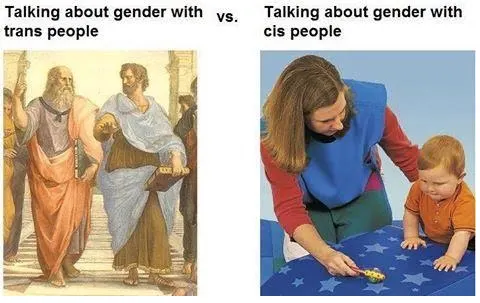
I sometimes want to ask them: What was their support based on? Was it based on listening to what trans people say about their lived experiences? Was it based on looking at what is actually being spoken about and inflicted on the trans community? Was it based on personally knowing someone transgender and the challenges they face?
Or was it just because it was "the right thing to do," and they wanted to be seen as a "good person?"
The article brings up the United Kingdom's Equality Act of 2010, portraying it as sufficient enough to protect trans people's dignity and right to live.
There is one very glaring issue with this, though - the United Kingdom's Equality Act of 2010 does not apply to the entire world.
I live in the United States, and our own Equality Act has been proposed in some form since 1970 - and has never been passed or signed into law. As a result, the rights of trans people lie at the mercy of individual states. So a trans person's right to use a public toilet, change their identification documents, or have insurance cover medically necessary gender-affirming care entirely depends on where they live.
The end result is that you have states like Pennsylvania where Medicaid is legally required to cover medically necessary healthcare, like hormone therapy and gender confirmation surgery. And then you have states like Texas, which is currently fighting to have transgender teenagers torn away from families who allow their children to get gender-affirming care.
Even within the UK, inequalities and transphobia still exist. The recent ban on conversion therapy in the UK does not extend to transgender people. Hate crimes against transgender people rose to 16 per cent from 2019 to 2020, then another 3 per cent from 2020 to 2021. And there are serious concerns that existing gender-neutral toilets in the UK may be scrapped, despite what the Equality Act says.
And this is just in the US and the UK. This isn't even going into the horror shows of Poland, Russia, and Hungary - or areas like the Middle East and parts of Africa, where being LGBTQ+ openly can lead to death or prison time.
The world is a terrifying place to be right now if you're trans - or any other minority group, for that matter. It's hard to imagine if you don't live it. Even I didn't until I accepted I was transgender and began transitioning.
And when I see cis people say that trans people should have the basic right to life, dignity, and freedom from discrimination, I do think they believe that, at least on some level. But it's a very abstract, easy thing to say. It doesn't require any deeper thought or work on their end.
But it will not help me when insurance will not cover preventative screenings for ovarian, cervical, or uterine cancer because of the "M" on my legal documentation. Likewise, it will not help a trans man or transmasculine person if a medical professional treats them as subhuman because they don't "look enough" like a woman, despite having an "F" on their driver's license.
It's not going to help us if my state's Supreme Court ever decides to backtrack on the precedent it set stating that Medicaid must cover all medically necessary care for trans people - and giving private insurance an excuse to do the same.
It will not help transgender minors forced into fraudulent conversion therapy by their parents.
It will not bring to justice the people who murder trans people and get away with it because the "trans panic defence" is still considered a viable defence in some areas of my country.
And it will not help the disproportionate number of transgender people who face oppression at the intersection of race and class; especially the black trans women forced into sex work due to poverty and who are at a disproportionate risk of violence and being killed just for existing to the wrong person at the wrong time.
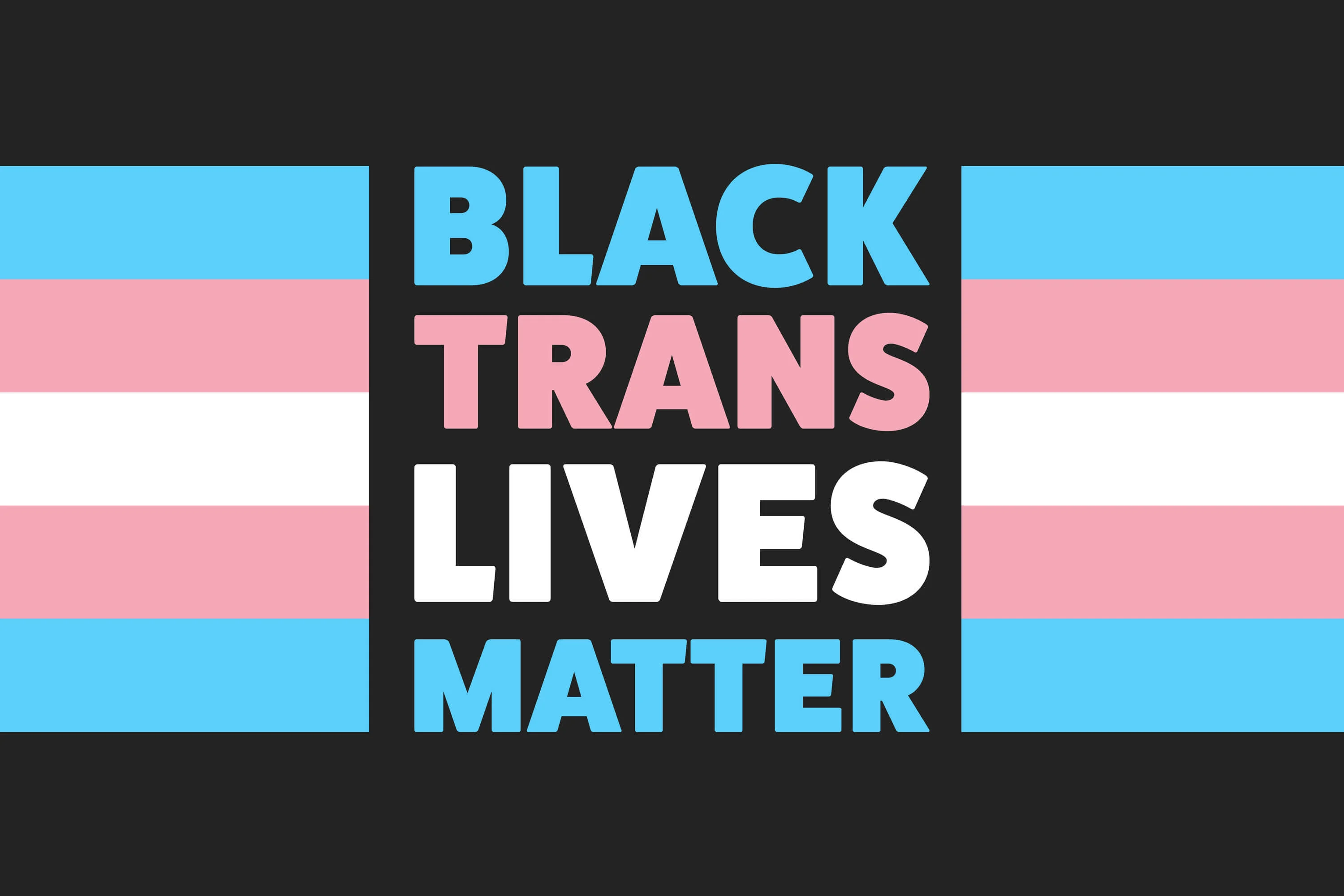
See, that's the thing about working in solidarity alongside the trans community. It takes conscious effort and a willingness to examine oneself.
It's understanding the lived realities of transgender people and the discrimination we face, especially those of us who suffer at the intersection of race, class, disability, and neurodivergence. It's trying to understand the systems of oppression that keep us from living fully realised lives.
It's moving beyond the primeval "disgust" gut reaction that our distant ancestors used to ensure their survival - the disgust you feel when confronted with some grotesque caricature of what someone "thinks" a trans woman looks like, or "cringy" pictures of trans people who don't "pass enough."
It's donating to nonprofits and organisations supporting transgender people, either in getting the care we need or advocating for our rights.
It's speaking up when someone posts transphobic or anti-trans rhetoric and educating yourself on how to respond to their rhetoric so that trans people don't have to do it.
It's looking at something a transgender person said or wrote that seems "snippy" or "rude," and having the empathy to think ", How many times has this person had to answer a question that I could have Googled? What might they be struggling with that led them to respond this way?" instead of getting angry or upset.
And it's knowing exactly what you would say if someone said to you, "Okay, what specific rights should trans people have, and why?"
Someone who hasn't done the "Trans Community 101" work might find the love-bombing and radicalisation efforts of "gender-critical" ideologues very persuasive. Apparently, all it can take is seeing one trans woman placing well in women's swimming (which, as a formerly cis woman swimmer, I find it hilarious that people are suddenly very concerned about and interested in women's swimming) to become susceptible to suggestions that trans people have some Orwellian agenda.
They're good people who want to do right, so they support the trans community believing it's the right thing to do - until one day, they don't.
Until one day, they become just another voice talking about all the problems transgender people integrating into society cause, without offering a single solution.
There's an old fable about a council of mice who all gathered together to discuss what to do about a cat hunting them.
(Stay with me. I have a point to this, I promise.)
One of the mice had the brilliant idea of putting the bell on the cat so they could hear it if it snuck up on them and escape to safety. This council agreed it was a brilliant idea - yet when it came time to actually put the bell on the cat, not one mouse had the courage to step forward and do it. And so, the cat continued to hunt the mice.
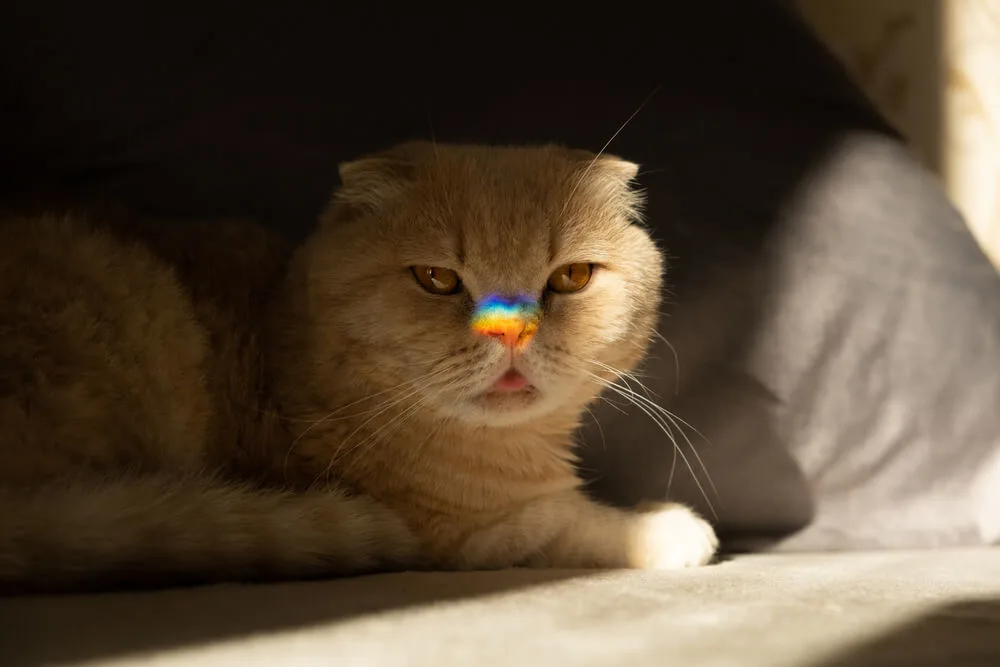
The difference between the ones with "reasonable concerns" about trans people and this council of mice is that the mice at least came up with a solution to their problem.
Gender critical apologists, on the other hand, say "Huh, those trans people sure are a huge problem for us, here's a 20-tweet thread about all the ways they're a nuisance at best and a menace at worst, even though I totally support their right to live," and then call it a day.
There's a reason for this, and I'm going to use a few of the issues Lawrence referenced as an example.
I want to make one thing clear before I begin: None of the "solutions" I question below are actual solutions. The solution for these problems is trans liberation.
But even as anti-trans activists and their apologists discard trans liberation as a concept, they offer no solutions to the problems trans people pose. And when you begin questioning the alternatives to trans liberation, it's easy to understand why.
Sports. The Olympics have allowed trans people to participate since 2004 as their actual gender so long as they had gender confirmation surgery and had been medically transitioning for a set period of time. In 2015, this changed so that trans women only needed to have testosterone below a certain level to participate in women's sports. Despite how long the rules were in place, it was only during the 2020 Olympics that Laurel Hubbard became the first openly transgender person to compete in the most recent Olympics. She did not even medal, let alone get first place.
But if trans women are a threat to completely dominating cisgender women in sports, what should be done about it? Do we need to go back to making women display themselves to a panel of doctors to sufficiently "prove" their femaleness? Should we begin assuming by default that any woman who excels in their sport must be a man in disguise (such as the Chinese team that won the women's 400-meter relay in the 2019 Chinese National Athletics Championship) and demanding proof of their chromosomes? If a cisgender woman is intersex and has elevated levels of testosterone, do we force her to take medication to make it "fairer" for other women participating due to biological differences? If so, why don't we go full-on Harrison Bergerond and proceed to do surgeries on Michael Phelps to take away the biological advantages he was born with to make it fairer for other participants?
(This doesn't even begin to touch on the discrimination, distress, and harm such testing can cause to athletes, or the fact that in the United States, Ohio is now proposing a law that would make such examinations required for children whose "sex is called into question.”)
Single-sex spaces. Despite the fact that there's no empirical evidence that transgender people pose any sort of threat to cis people in bathrooms or other single-sex spaces (quite the opposite, in fact), this was quite the hot-button topic here in the States for a time. Yet aside from bills forcing transgender people to use the bathroom associated with their assigned sex at birth, there were never any proposals on how to enforce these sorts of laws, or how to ensure the safety of transgender people.
How will we protect cisgender women from being mistaken for trans? Will we have brave men standing outside the restrooms ready to administer pat-downs to people whose shoulders are too wide for the women's room, or too narrow for the men's? Will security guards be trained on how to identify the chromosomal makeup of males and females by sight to avoid embarrassing mistakes like this?
Or maybe we should introduce body scanners outside of each restroom to ensure that only people of the "right" gender enter the "right" bathroom. Just make sure that butch cis women look sufficiently feminine enough.
And hey, if worst comes to worst, we can make them expose their genitals.
And with regards to prisons, what measures would we take to ensure that transgender women and men are safe from rape and harassment? Or that transgender men don't end up triggering cis female inmates who have experienced sexual assault and violence? Is this a case where one would argue that "separate but equal" is justified for the comfort of cis people?
Identity documentation. This is the point where I will give credit where it's due - this is the one point where the concern is for trans people's well-being. Despite the fact that changing legal documentation can improve the mental health of trans people and lessen negative emotional reactions to gendered mistreatment, I will concede that assigned sex at birth can make a difference in medicine dosage.
Fortunately, the article that Mr. Lawrence linked to has a great solution for this in its last paragraph:
Rather than discuss their sex and gender identity, some patients may prefer to fill out an information form that includes a number of gender identity options, asks the sex they were assigned at birth, and offers them the option to decline to answer. It may be useful to take an organ-led approach and leave relevant markers regarding organs on a patient's notes, without needing to record any previous gender status.
Aside from that - would we outlaw changing identity documentation, as they did with Hungary and Montana? Or would we make transgender people wear some sort of visual signifier that they're transgender to ensure that they're not mistaken for being cisgender, or make them note they're transgender on their documentation, putting them at risk for embarrassment and harassment at best and violence at worst?
And this is just off-the-cuff thinking. As I said earlier in this article, ALL of these deserve a more thorough breakdown in articles of their own.
It's simply to show that thinking about even a few of these "alternatives" for five seconds shows glaring issues that will inconvenience cisgender people and treat transgender people like second-class citizens.
But at least I offered other solutions, as terrible and horrific as they are. I asked questions to try to get something more concrete than "trans people have a right to live free of discrimination and with respect."
What have these reasonably concerned citizens suggested?
Who has stepped forward to recommend how to deal with the cat?
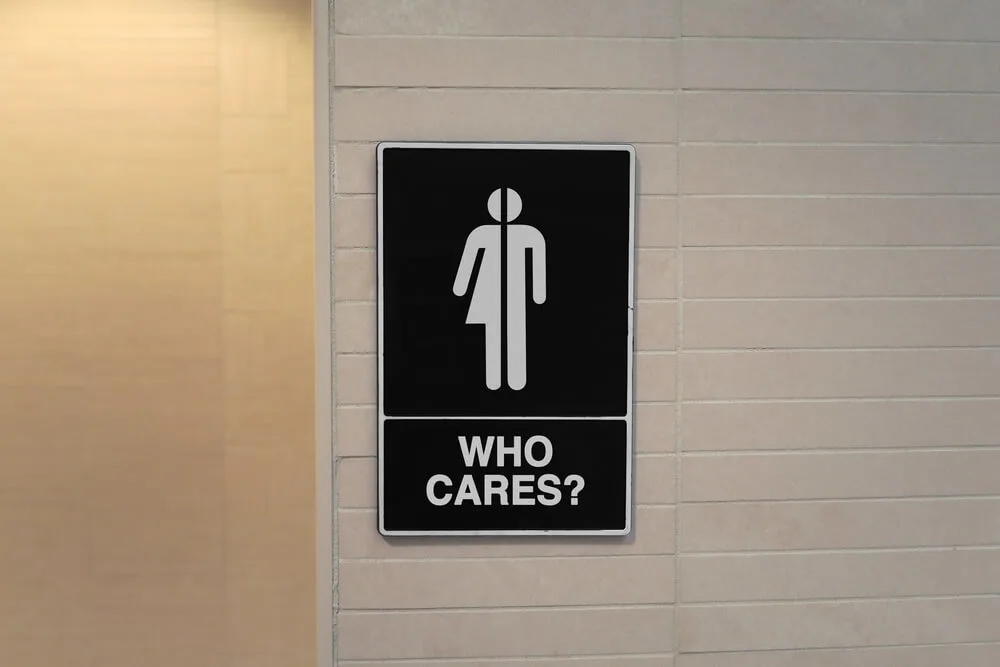
If you're struggling to answer that question, I'm not surprised. I won't pretend I hadn't thought about it, especially during the beginning of my transition when I was still struggling with internalised transphobia. It's only in living for close to three and a half years as a queer trans person that I've come to understand that trans liberation is the only true solution.
I don't want to have to stand on the front lines and be on high alert in case I need to stand up for myself and trans brothers, sisters, and siblings. I want to have faith that people mean it when they say they support us. When they say they don't get why people are so concerned about us. When they say we deserve basic human rights.
But I've seen what happens when a trans person is anything less than polite and enthusiastic when answering a question they've been asked and expected to answer a thousand times before, or when they have to explain why That Harmless Thing You Said Is, In Fact, Not Harmless.
I saw it happen when someone who claimed to be a former ally saw a trans woman excelling at something.
And I've had to listen to people explain to me why one of a few sensationalised transgender predators is reason enough to put trans women and men at risk for horrific sexual and physical violence, harassment, and humiliation.
And after they explain this, I begin to understand how they became another mouthpiece for rhetoric that seems more contagious than COVID-19, repeating the same thing over and over - about how we're such a nuisance, how we're dangerous to cis people (especially white, middle-class, able-bodied, neurotypical women), and how it's such a shame that we can't be polite and willing to kowtow to cis people all the time.
Then someone else sees it. And they believe it. Their shallow "allyship" gets challenged, and without a solid understanding of the systemic challenges trans people face, said allyship collapses like a Jenga tower. They decide to share their newfound knowledge by "coming out" as "gender critical.". And the cycle repeats.
And like I've stated throughout the article, I can understand the reaction. I can understand why being snapped at when asking a question in good faith and desire to understand can inspire a bad reaction and open someone up to radicalisation, especially if it happens on Twitter or on some other social media website. How time-consuming it can be to look into the studies and statements of medical organisations and actually understand the science and psychology of transition. How seeing someone who's done something absolutely reprehensible can lead to concerns that it might happen again.
I get it.
But here's the thing: This isn't the problem of trans people.
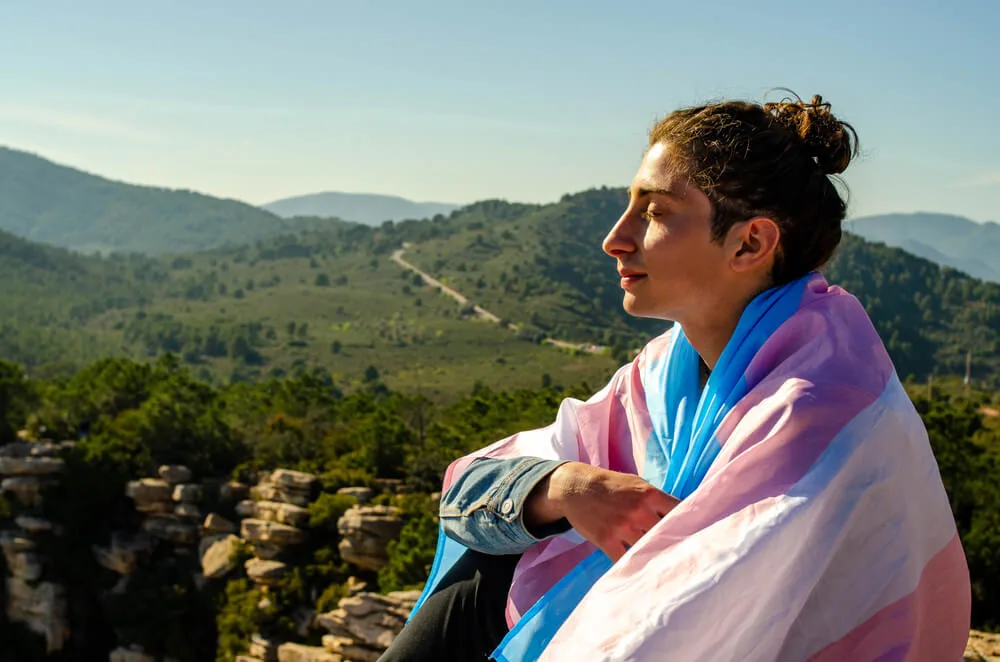
Cis people's discomfort with us does not trump our safety. 57 transgender people were murdered here in the States in 2021, almost all of them trans women of color. 15 people have been killed this year as of May 6th. A trans woman was harassed after being falsely accused of carrying out the Uvalde shooting that happened on May 24th.
And that's the tip of the iceberg. The United States and United Kingdom are incredibly scary places for trans people to live right now, to the point that New Zealand granted asylum to a British woman.
I'm one of the lucky ones. I live a fairly comfortable life and have access to coverage for my gender-affirming care, even surgeries. I'm white, I'm able-bodied, and I have a family that's able to help me in the absolute nightmare that is the United States economy right now.
There are things that scare me, yes, but I'm more scared for the people who will be in a lot more danger than me. The children and youth who will be thrown out of their homes or be forced to run away. The adults who will not be able to access transition-related healthcare. The ones who are going to be at increased risk of violence as the people in power whip up hysteria and fear around our very existence.
And I'm pretty sure there's a famous poem foreshadowing that I'm not immune forever, even as privileged as I am.
This isn't an issue of whether people "actually see us" as we are, rather than as what we were assigned at birth.
This is an issue of our lives.
I'm not going to call these people transphobes and let them wear it as some twisted badge of honour in "support of women's rights." With the safety, rights, and lives of trans people more at risk than ever, I have way more important things to worry about than whether or not a former ally finds it "morally righteous" to support our community.
But to any cisgender ally reading this - or even to anyone like Lawrence, who once supported us - I'm going to give you a challenge I hope you'll accept.
I challenge you to read and listen to what transgender people from all walks of life say - especially if they are trans people of colour, who face a disproportionate amount of violence, poverty, and discrimination.
I challenge you to actually think about what you specifically mean when you say "trans people deserve basic rights, to live as they see fit, and to not be discriminated against," and to know why you believe it.
I challenge you to elevate and amplify the voices of trans people, and to be brave enough to at least start to be part of the solution instead of parroting the problems with our mere existence.
In other words: I believe you are good people who want to do the right thing. So I challenge you to do better.
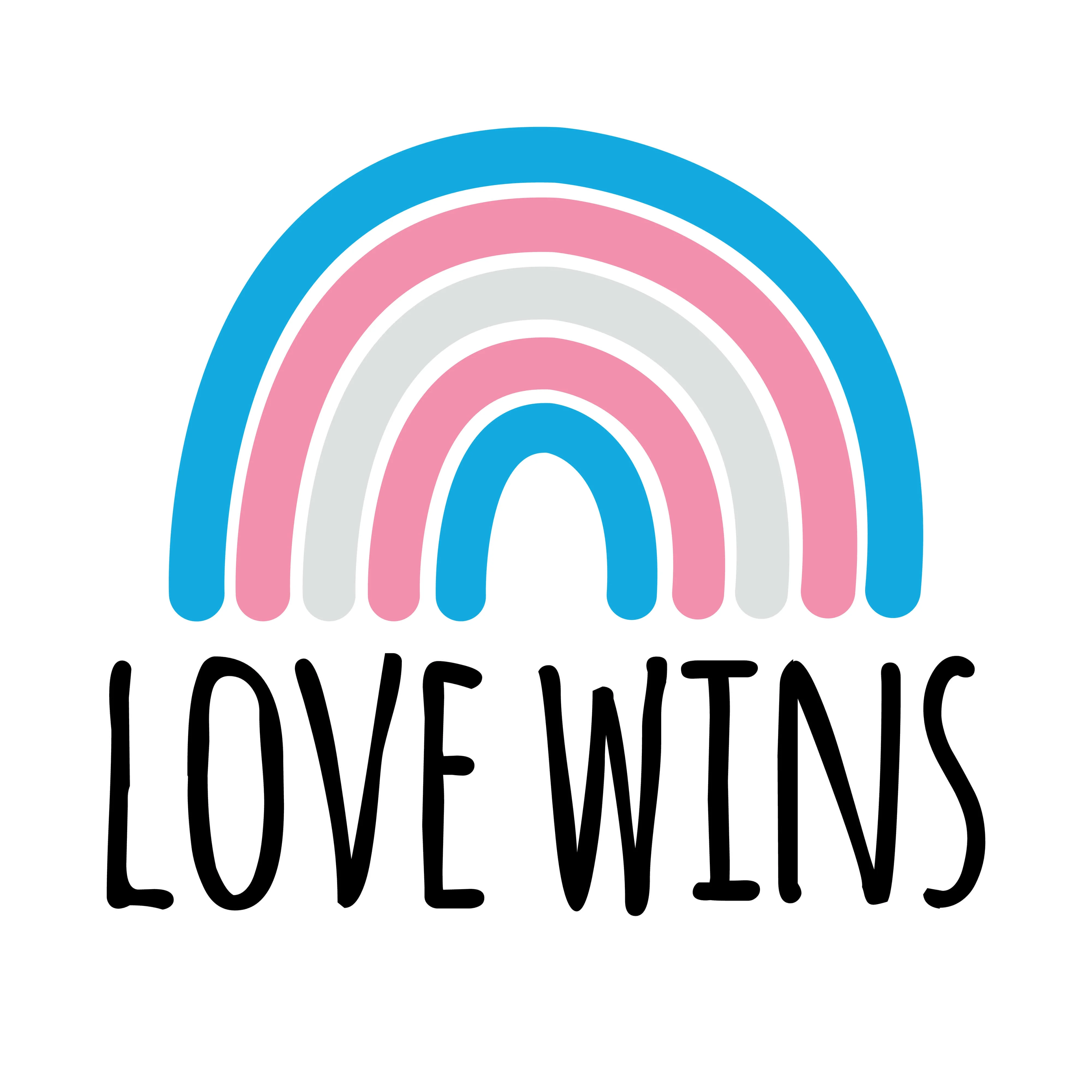
Written by
K.M. NobleSteel City queer trans man interested in LGBTQ+ rights, justice, analyzing pop culture from multiple lenses, and the truth.
Weekly emails
Get more from K.M.
The Fledger was born out of a deep-seated belief in the power of young voices. Get relevant views on topics you care about direct to your inbox each week.
Write at The Fledger
Disagree with K.M.?
Have an article in mind? The Fledger is open to voices from all backgrounds. Get in touch and give your words flight.
Write the Contrast